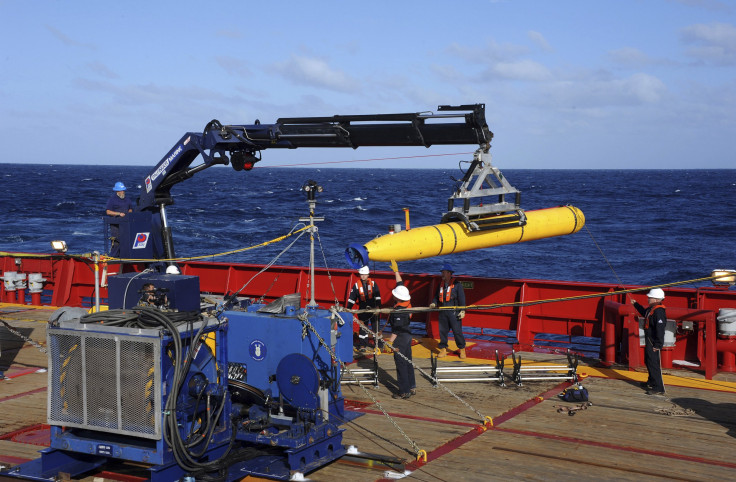Malaysia Airlines Flight MH370: Signal Detection By Australian Ship ‘Most Promising Lead;’ Confirmation Of Link To Missing Plane Could Take Days

Signals detected underwater by Australian vessel Ocean Shield, which is towing a device in the southern Indian Ocean to detect signals from the potentially drowned flight data recorders of missing Malaysia Airlines Flight MH370 could be the “most promising lead” yet in the month-long search, a senior Australian official said at a media briefing Monday.
“The pinger locator has detected signals consistent with those emitted by aircraft black boxes,” Angus Houston, a retired air force official who is leading the search, said according to Macquarie Port News, adding: "Clearly in the search so far this is probably the best information we've had."
The longest signal was held for two hours and 20 minutes, ABC News reported, citing Houston, who reportedly added that it could takes days to confirm that the signals were emitted by the Malaysia Airlines jet. The Boeing 777 went missing March 8, on a flight from Kuala Lumpur to Beijing, with 239 people on board, launching an international search on an unprecedented scale.
On Monday, the search for the airliner included nine military planes, three civilian planes and 14 ships, according to Australia’s Joint Agency Coordination Center, in an area expected to be about 145,000 square miles, while a British survey ship, HMS Echo, is also on its way to assist in the search.
Ocean Shield, which reportedly first detected the signals on Saturday night, and Chinese vessel Haixun 01, which detected pulse signals once on Friday and, again on Saturday, but in a different part of the search area, will continue to look for signals Monday.
According to Macquarie Port News, the frequency of the signal detected by the Chinese vessel is identical to the pulse emitted by flight data recorders, also known as black boxes, which are equipped with batteries that are designed to run for about 30 days. On Monday, the search for the missing jet enters its thirtieth day, further complicating a search that has so far yielded no material clues as to the plane's fate.
“In very deep oceanic water, nothing happens fast,” Houston said Monday, according to ABC News. "We've still got a lot of difficult, painstaking work to do."
© Copyright IBTimes 2024. All rights reserved.






















